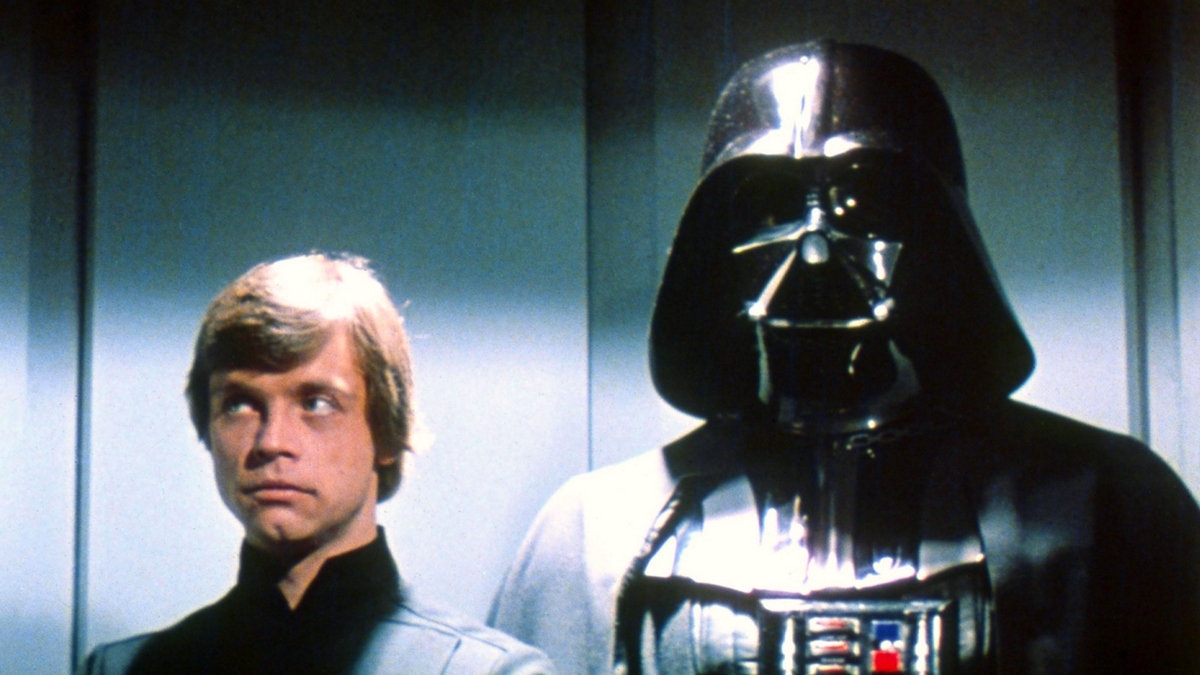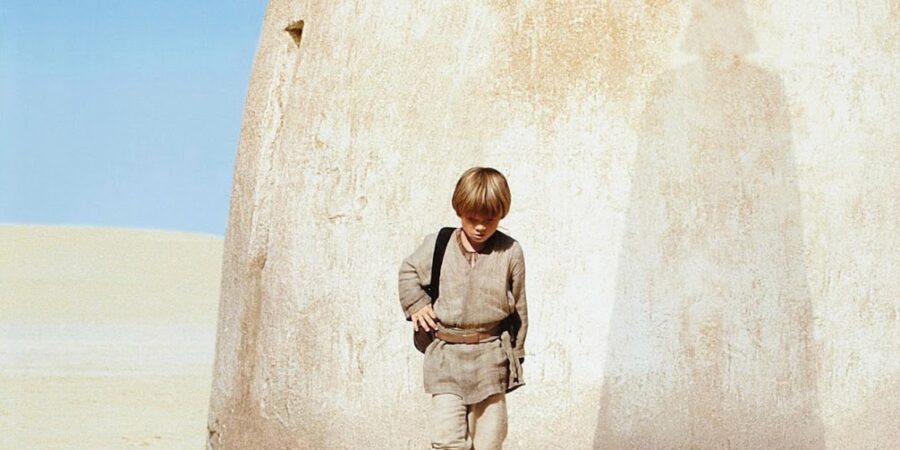Star Wars: Here’s Why Darth Vader Saved Luke in the End

As one of the most iconic characters in cinematic history, Darth Vader has been the focus of many Star Wars fans and film buffs with a keen eye for the characters whose very mention creates an almost palpable presence. The voice of none other but James Earl Jones is so empowering that it echoes the might of the Dark Lord of the Sith and plants fear in all who encounter him, along with his masked appearance. And so the question arises: why would the Dark Lord of the Sith save a Jedi?
Darth Vader saved Luke at the end of ‘The Return of the Jedi’ because of the inner conflict that he never fully forswore. Darth Vader’s torn persona finds its roots in the Jedi and the man he used to be – Anakin Skywalker. Having lost the love of his life, who was pregnant with their child, Darth Vader carried a memory too grave to ever be forgotten. And in Luke, he felt the long-lost part of himself and the woman he loved.
The tragic story of the Skywalker bloodline with whom the Force has been strong for some generations seems to have played the key role in the turn of events that affected the “galaxy far, far away.” This is our analysis of how Lord Vader’s inner conflict resulted in him turning against Darth Sidious.
Why & how Anakin turned to the dark side?
Being introduced to the Jedi and starting his training as a child, the potential he had began to claim more spotlight as he skyrocketed to a place that unlocked new knowledge, wisdom, and strength. He, who spent his early childhood as a slave and knew what it meant to be oppressed and mistreated, now had the ability to have a stronger impact on the world around him as he began the journey to achieve his full potential.

However, the first big event that pushed him closer to the edge was the tragic death of his mother. In ‘Episode II,’ Anakin has dreams of his mother suffering, with the nightmares so vivid that he is compelled to seek her out. This strong yearning to keep his loved ones safe and fix injustice took a negative turn when his mother died in his arms after being kidnapped and tortured by the Sand People on Tatooine.
Anger, grief, and pain consumed a powerful Jedi with a bright future. He slaughtered everyone there “like animals,” as he said, women and children included.
After confessing to Padme, he reflected on the ways of the Jedi and his actions. The contradictions within resurfaced, and his doubts and fear, and power grew. In one moment, he exclaimed that Obi-Wan was like a father to him, and in the next, how his master was jealous and held him back, slowing him down on the journey to become even more powerful. Convinced that it was because of his own lack of strength that he failed to protect his mother, Anakin made a promise never to allow this to happen again.

Anakin’s actions seemed to be governed by his emotions. One might even say that he was almost as passionate as he was powerful, especially if we are to recall the statements he made about not being able to live in a world without Padme. Their forbidden love that would soon see the birth of their children brought him joy but also fuelled his yearning for greater power that would not only keep her safe but could allow them to stop living in secrecy.
Moreover, Anakin reflected on how his actions don’t follow the Jedi teachings on multiple occasions in Episodes II and III, yet his reason couldn’t prevail when the fear of losing the one he loved kept gnawing at his mind.
The sense of duty and loyalty to the Jedi, the high morals of those who selflessly fight to preserve balance, all fell second to his fear of losing that which he deeply cared for. By joining Palpatine, he could not only obtain the power to keep her safe but would also put him in a position to ensure their love would not need to be hidden any longer, as he told her before his fight with Obi-Wan in ‘Episode III.’
To recall his words earlier in the episode, he confessed that he felt lost but soon grabbed hold of the idea that possessed his brain – save Padme from dying in childbirth. While it was clear that he was aware of the conflict he found himself in, he was always clenching onto this thought Palpatine planted about ultimate power.
The promise of such abilities that some may find unnatural, hinting at the Jedi order casting aside the very thing Anakin would do anything to obtain, Palpatine had already captured the mind of the young Jedi. A weakness because of which Anakin failed to make Palpatines’s true identity known to the Council even after he was faced with the truth. It is almost comparable to a child who chose to believe one thing over another, as it was precisely what he wanted to hear, while the alternative was him needing to face and accept a reality he saw in his nightmares.
The inner conflict is clear from one scene to the next, similar to the beginning of Episode III, where he stops himself from killing Count Dooku because he recalled the Jedi teachings but obeyed Palpatine’s order to slay the beaten foe. Yet, in the very next scene, he stands up to Palpatine with incredible resolve when he states that Obi-Wan’s fate shall be the same as theirs, as he postpones the escape to rescue his master.
Palpatine only used Anakin
The clash between Palpatine’s decisions regarding Anakin and the Council’s reactions to the same worsened the conflict inside him, as he had to dance to the tune played by both. While Palpatine pushed him in the direction of power which he craved, the Jedi Council opposed such a quick rise of a young Jedi and wanted to keep his head out of the clouds, teaching him to be wise, righteous, and to live by the honorable way of the Jedi.

Thus, when Windu repeated the same line at the end of ‘Episode III’ that Palpatine told Anakin at the beginning of the same film about Count Dooku – “too dangerous to be left alive” – Anakin’s doubts grabbed hold of him, and uncertainties flooded his mind. Even though he knew the truth about Darth Sidious and told no one, he relied on the Jedi way when facing Windu.
Be it as a sign of struggle that hints at Anakin counting on the Light to lead to the outcome he wanted, or him calling upon his own morals and the loyalty he had towards the Jedi he admired ever since he was a child, and he had the strength to resist blindly striking down Windu who was moments away from slaying the one person he believed was the key to eschewing his nightmare. The final straw was the very mention of such power, which Palpatine uttered mere seconds before the young Jedi turned on Windu and saved the Sith leader.
His torn mind was shattered. Reflecting briefly on what he had just done, the thin thread that kept him afloat broke, and Anakin was no more. Darth Vader was born and rose to become the Dark Lord of the Sith. Ultimately, Anakin refused to make peace with his own powerlessness and deviations from the Jedi path, and in his desire to protect, he betrayed everything else that made him who he was.
Thus, the Dark Lord Vader came into existence, the embodiment of the rage, anger, and pain that consumed him and the identity that took on all the evil that had been done.
Here, another parallel can be drawn. Faced with a situation in which murder seemed inevitable in order to protect the one he loved, Anakin was lost, but Luke refused to pursue such an outcome. When Vader pressed on and mentioned Leia, whom Luke loved deeply and wanted to protect at all cost, Luke was taken by the same fear and anger, as he rushed at his father and wouldn’t stop until he sliced off his hand.
Here, Vader might have just sought the final reassurance that what he had done was right, almost as if he wanted to justify his existence and Anakin’s demise. If his own son had taken his place by slaying him and joining his master, everything he did would not have been in vain, and the remnants of his love would live on.
However, Luke refused to murder his father. Knowing that he may die and that his sister’s fate may be painful, Luke stepped down and stayed in the Light. Anakin and Padme’s flesh and blood, the one who awakened the deep love that was Anakin Skywalker’s main drive, lowered his weapon and opposed the great Palpatine. Unable to break him, Palpatine attacked Luke with murderous intent while Vader watched.
He once again witnessed a showdown between light and darkness, only this time, the darkness he trusted all those years ago for the sake of his love now had the remaining fragment of the same love at its mercy. His son’s strength and the lingering feelings for Padme and their children guided Anakin back to the Light and finally ended the lonely journey of a lost man. A father’s feelings prevailed over the Sith’s influence and might.
The fact that he never let go of his strong emotions for his love and their children crystallized during Episodes V and VI, as a subtle change in writing occurred. Once he revealed that he was Luke’s father, Vader never once called him anything but ‘son’ or ‘Luke.’ Moreover, although Palpatine recognized Luke as a threat, Vader suggested that he could be turned to the Dark Side.
It wouldn’t be unreasonable to assume that Vader knew he would be replaced by Luke in such a case, perpetuating the cycle where the one thing that truly never wavered in Anakin – love for Padme and their (then) unborn children – would be the key in abandoning all else and joining the Dark Side.
Darth Vader’s decision to save Luke Skywalker resulted from his inner conflict and his enduring love for his family. Anakin’s journey from a promising Jedi to the Dark Lord of the Sith was shaped by his emotions, desires, and vulnerabilities.
He was an affectionate man who loved deeply and was both cursed and blessed with power. His unconditional love for his son and the remnants of his love for Padme ultimately redeemed him and allowed him to reject the darkness.
Have something to add? Let us know in the comments below!

